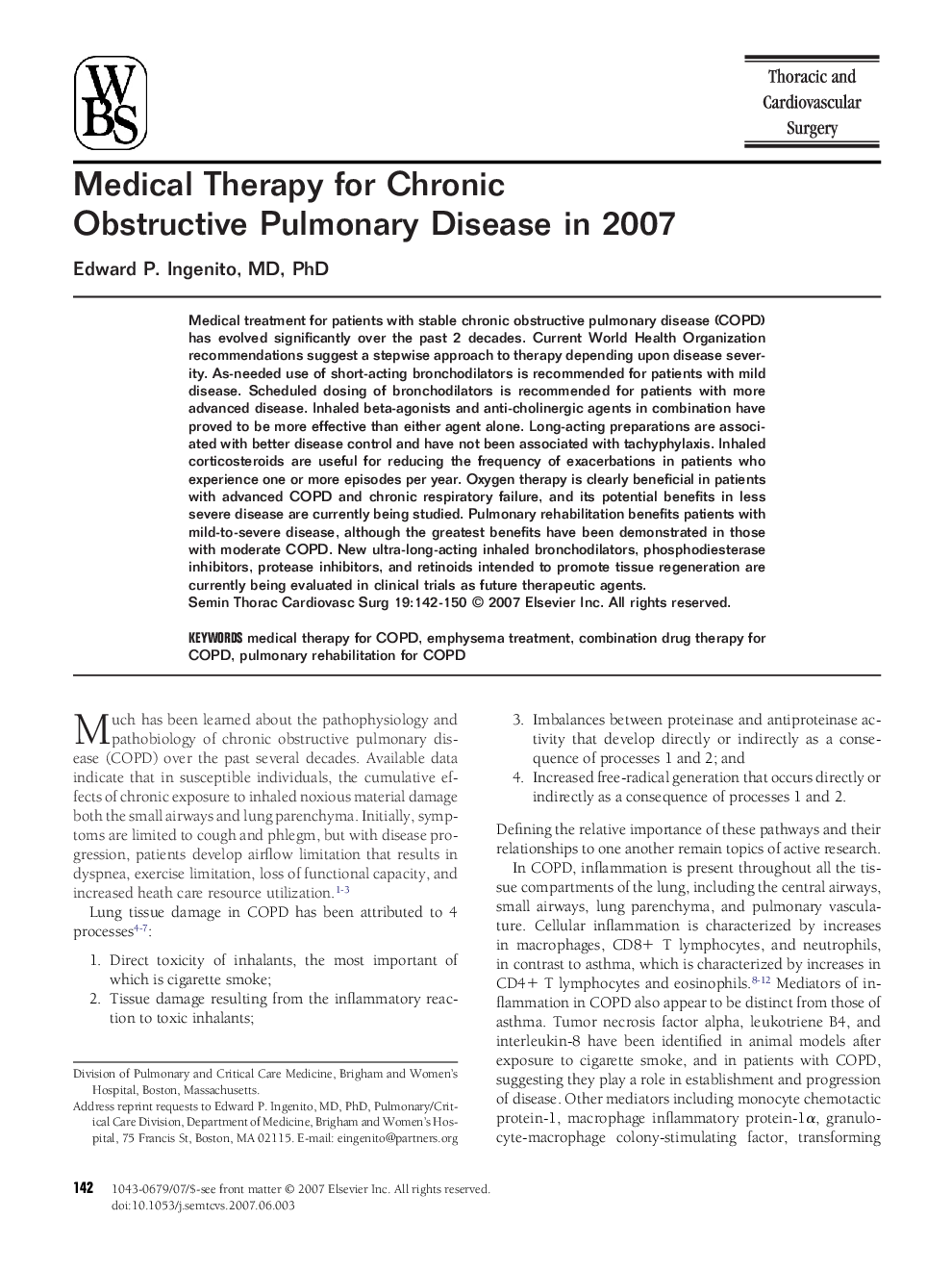| Article ID | Journal | Published Year | Pages | File Type |
|---|---|---|---|---|
| 3025800 | Seminars in Thoracic and Cardiovascular Surgery | 2007 | 9 Pages |
Medical treatment for patients with stable chronic obstructive pulmonary disease (COPD) has evolved significantly over the past 2 decades. Current World Health Organization recommendations suggest a stepwise approach to therapy depending upon disease severity. As-needed use of short-acting bronchodilators is recommended for patients with mild disease. Scheduled dosing of bronchodilators is recommended for patients with more advanced disease. Inhaled beta-agonists and anti-cholinergic agents in combination have proved to be more effective than either agent alone. Long-acting preparations are associated with better disease control and have not been associated with tachyphylaxis. Inhaled corticosteroids are useful for reducing the frequency of exacerbations in patients who experience one or more episodes per year. Oxygen therapy is clearly beneficial in patients with advanced COPD and chronic respiratory failure, and its potential benefits in less severe disease are currently being studied. Pulmonary rehabilitation benefits patients with mild-to-severe disease, although the greatest benefits have been demonstrated in those with moderate COPD. New ultra-long-acting inhaled bronchodilators, phosphodiesterase inhibitors, protease inhibitors, and retinoids intended to promote tissue regeneration are currently being evaluated in clinical trials as future therapeutic agents.
